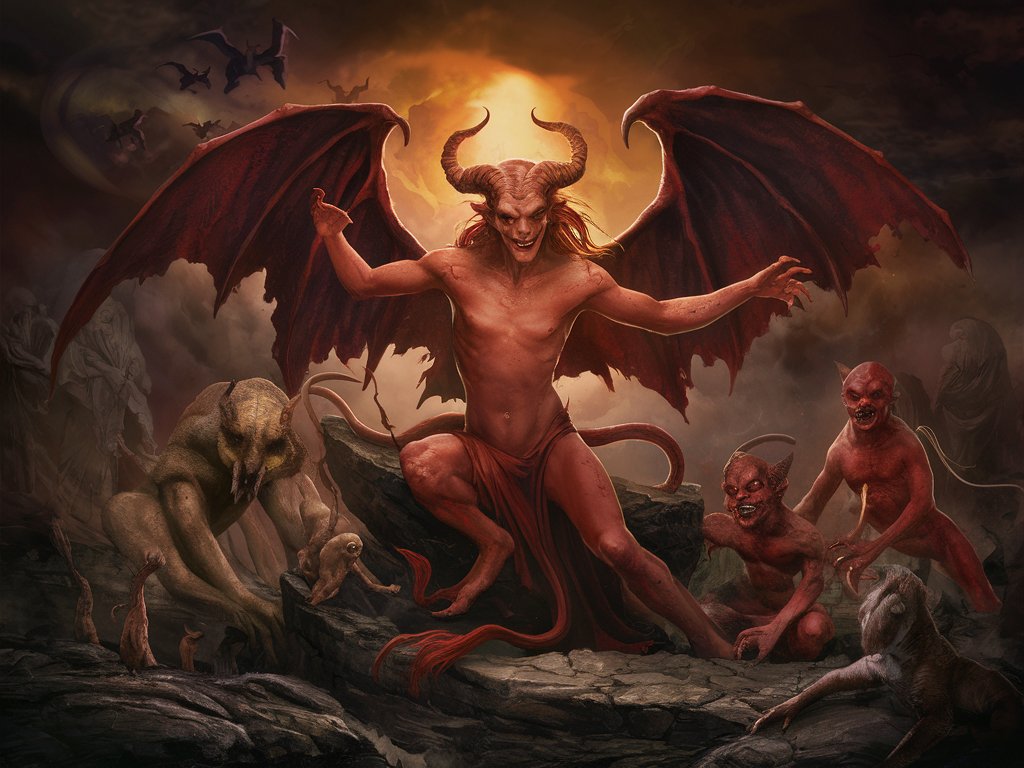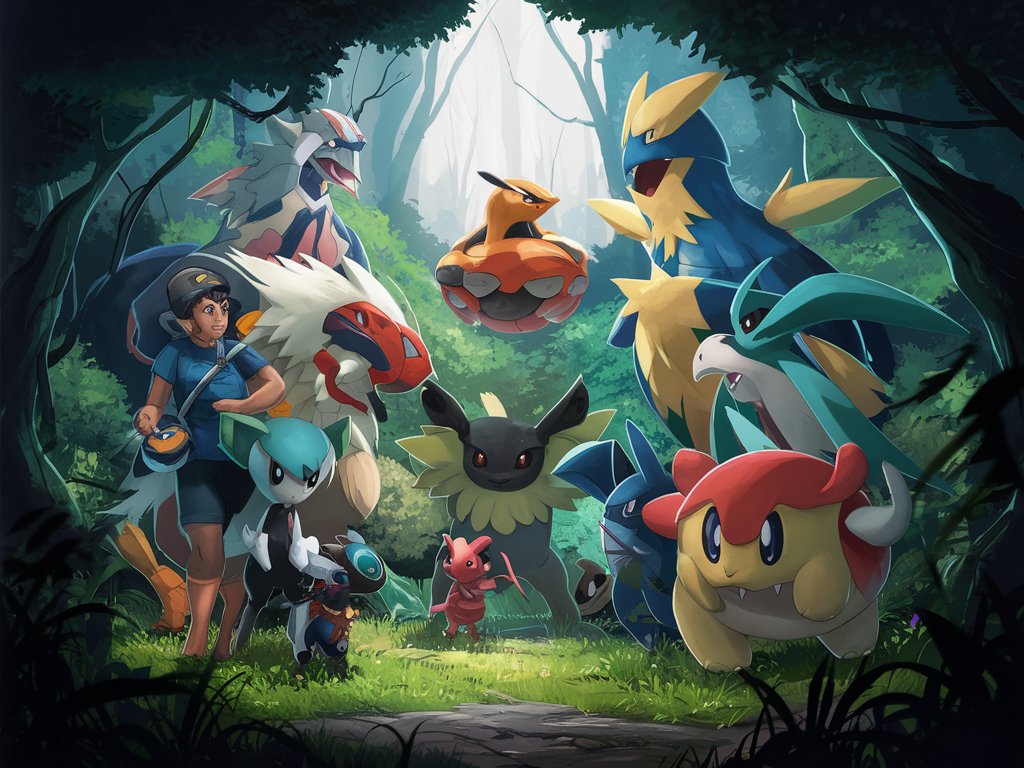The concept of demons has captivated storytellers and theologians for millennia. These malevolent entities, often depicted as fallen angels or monstrous beings, represent the primal forces of chaos and evil. But what if demons weren’t static figures? Enter the realm of “demonic evolution,” a narrative trope that explores the concept of demons changing and adapting over time. This blog delves into the fascinating world of demonic evolution, exploring its potential themes, applications in storytelling, and the ethical considerations it raises.
The Seeds of Demonic Evolution
The idea of demons evolving can be traced back to various sources:
- Mythological Inspiration: Several mythologies, like the Judeo-Christian tradition, depict fallen angels like Lucifer gaining power and knowledge over time. This implies a form of demonic evolution, even if not explicitly stated.
- Darwinian Evolution: The theory of evolution by natural selection, popularized by Charles Darwin, suggests all living beings adapt to survive and thrive. Could this principle apply to demonic entities as well?
- Modern Storytelling: Fantasy and science fiction genres frequently explore the concept of powerful beings evolving new abilities or forms. Applying this concept to demons opens up exciting narrative possibilities.
Themes Explored in Demonic Evolution
Demonic evolution offers a unique lens through which to explore various themes:
- The Corrupting Nature of Power: As demons evolve, gaining power and knowledge, the potential for corruption grows. Stories can explore how this power warps their morality and fuels their destructive tendencies.
- The Erosion of Humanity: If demons were once angelic beings, their evolution might involve a gradual loss of compassion and empathy. This loss can be a powerful narrative tool, highlighting the contrast between their celestial origins and their monstrous present.
- The Threat of Unchecked Ambition: Demons might evolve due to an insatiable hunger for power. Stories can explore the devastating consequences of such ambition, both for the demons themselves and the worlds they inhabit.
- The Nature of Good and Evil: Demonic evolution can challenge our traditional notions of good and evil. Are demons inherently evil, or are they products of a twisted evolutionary process? This ambiguity can spark intriguing philosophical discussions.
Also Read: Travelers Inn: Your Guide to Budget-Friendly Comfort Across NA
Applications of Demonic Evolution in Storytelling
The concept of demonic evolution finds fertile ground in various forms of storytelling:
- Fantasy Literature: Fantasy novels and sagas can introduce demonic beings who evolve alongside other creatures. This can create a dynamic and ever-changing threat, forcing heroes and heroines to adapt their strategies.
- Role-Playing Games: In tabletop role-playing games (RPGs), demonic evolution can add depth and complexity to encounters. Demons who can adapt their abilities based on encounters with players create a more challenging and unpredictable experience.
- Video Games: Video game narratives can benefit from the concept of demonic evolution. Imagine a boss enemy that mutates or evolves after each defeat, forcing players to adjust their tactics for each encounter.
- Horror Fiction: Horror stories can utilize demonic evolution to create a sense of dread and paranoia. The knowledge that demons can become more powerful and terrifying over time can fuel a constant sense of threat and impending doom.
Ethical Considerations of Demonic Evolutions
While demonic evolution is a compelling narrative tool, some ethical considerations deserve exploration:
- The Glorification of Evil: Does portraying demons as powerful and adaptable figures inadvertently glorify their destructive nature? It’s crucial to maintain a clear distinction between the thrilling and the morally repugnant.
- The Power Imbalance: Stories with rapidly evolving demons can create a situation where heroes seem powerless. Maintaining a sense of agency for the protagonists and hope for the audience is important.
- The Moral Complexity: Demonic evolutions can blur the lines between good and evil. This complexity should be explored thoughtfully, avoiding narratives that trivialize the consequences of demonic actions.
Exploring Further: Demonic Evolution in Popular Culture
Several examples in popular culture showcase the potential of demonic evolutions:
- Diablo Franchise (Video Games): The Diablo series features demons who gain power and evolve over millennia, posing a constant threat to humanity.
- Neon Genesis Evangelion (Anime): The Angels in this anime series evolve with each confrontation against humanity, becoming increasingly powerful and enigmatic.
- Constantine (Film): In this film, demons can possess humans and evolve their abilities based on the knowledge and power they gain from their hosts.
Conclusion: Demonic Evolution – A Gateway to Captivating Narratives
Demonic evolution offers a fascinating concept for storytellers, allowing exploration of power, corruption, and the complexities of good and evil. By keeping in mind the ethical considerations and employing the concept thoughtfully, authors and creators can craft captivating narratives that challenge and entertain audiences.







